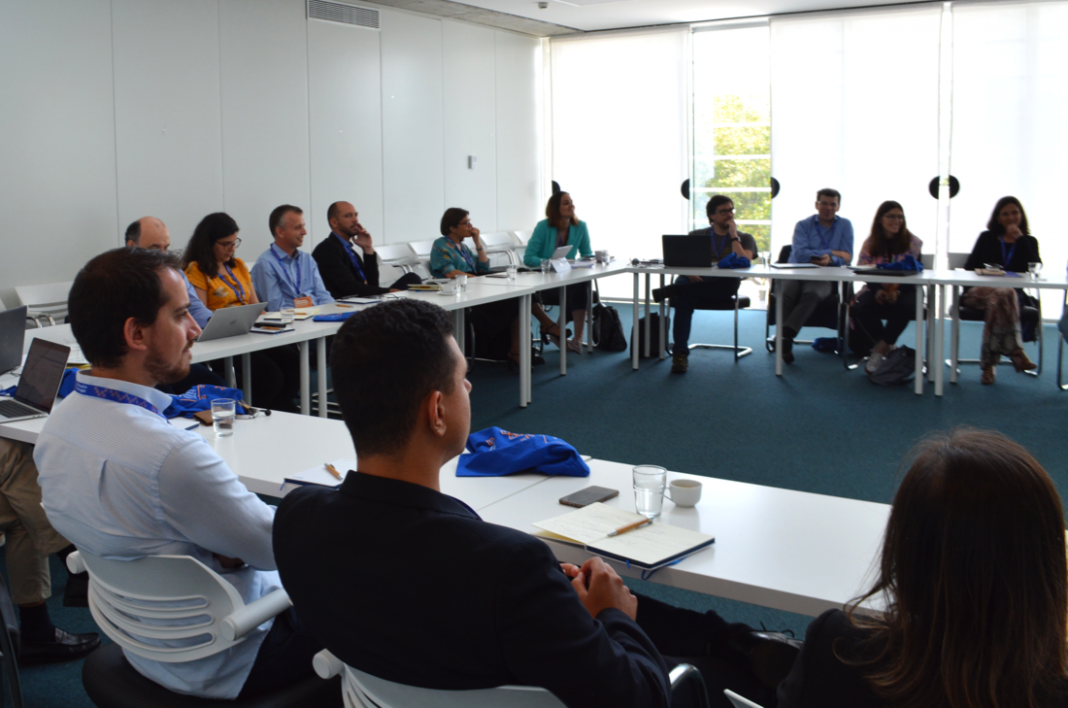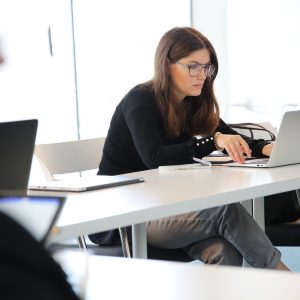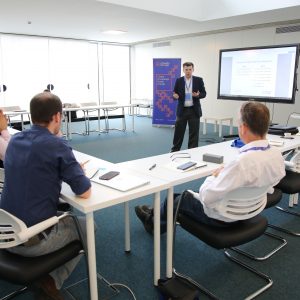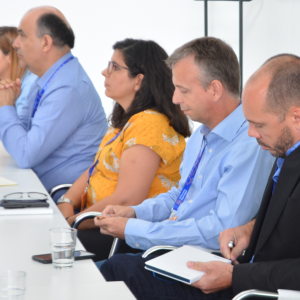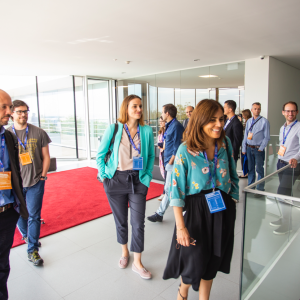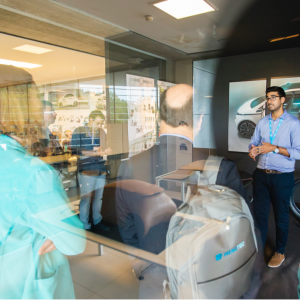The goal was to “hack” valuable insights to optimize many emerging opportunities in the global New Space Economy.
Earlier this month, the UT Austin Portugal Program, in close collaboration with the Foundation for Science and Technology (FCT), Portugal Space, AIR Centre, CEiiA, and Instituto Pedro Nunes (IPN), organized a thematic event that gathered some of Portugal’s most talented players in matters of Space R&D and entrepreneurship. The ´New Space Hackathon’ took place at CEiiA, between July 4 and 5, to identify emerging New Space technologies with the potential for advancing Portugal’s intellectual and business success.
Coordination of the event was in the hands of Burke Fort, Associate Director of the University of Texas Center for Space Research, who conceptualized and designed the Hackathon’s process.
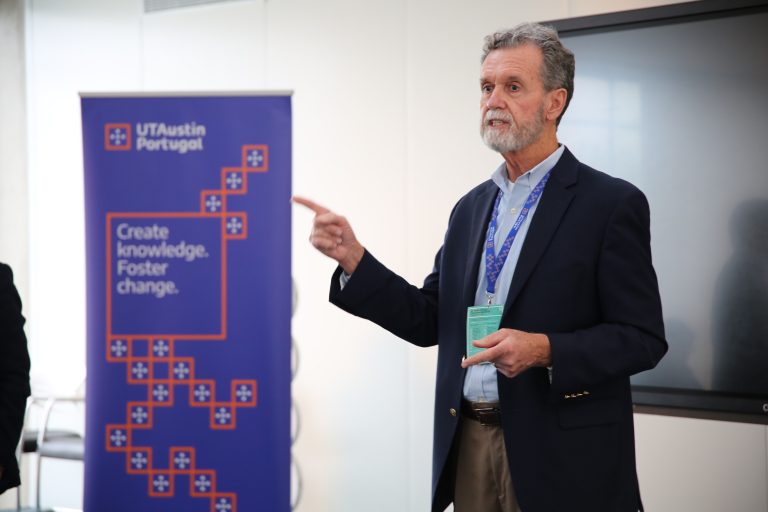
The event engaged talented technical “Creatives” and experienced business “Enablers” in a gradually “deliberative” process to identify the most promising Portugal-centric market opportunities, within the emerging New Space Economy. This effort aligns with the Strategic Objectives articulated in Portugal Space 2030: A Research, Innovation, and Growth Strategy for Portugal.
The invited “Creatives”, who could be direct or indirectly involved in New Space activities, were assigned the role of acknowledged New Space technology venture thought leaders. In contrast, the “Enablers” group was constituted by practising specialists familiar with Portugal’s entrepreneurial ecosystem. Their Hackathon mission was to give comprehensive briefings to and answer questions from the Creatives on relevant topics, such as technology market business modelling, technology market public policy tools and regulatory frameworks, and technology market investment behaviour and trends.
Over the course of two days, both groups engaged in several activities, such as the completion of surveys, briefings, and presentations, as well as networking with peers. Explored included (a) current conditions and anticipated developments within the business side of technological innovation, (b) investors’ specific performance standards and expectations, and (c) common mistakes made by technology start-ups and how to avoid them.
Manuel Heitor, Minister of Science, Technology and Higher Education, and Helena Pereira, President of Portuguese Foundation for Science and Technology (FCT), made a special visit to the event on the Hackathon’s second day. The Minister emphasized the importance of Space matters for the country and its articulation in the European context. “This complex issue is shaping Science, is shaping the country and the Portuguese Government”, he said. With the creation of Portugal Space, the new Portuguese space agency that will promote new activities and businesses in the space sector, Minister Heitor also stressed that the expectation is “to create more and better jobs in Europe”.
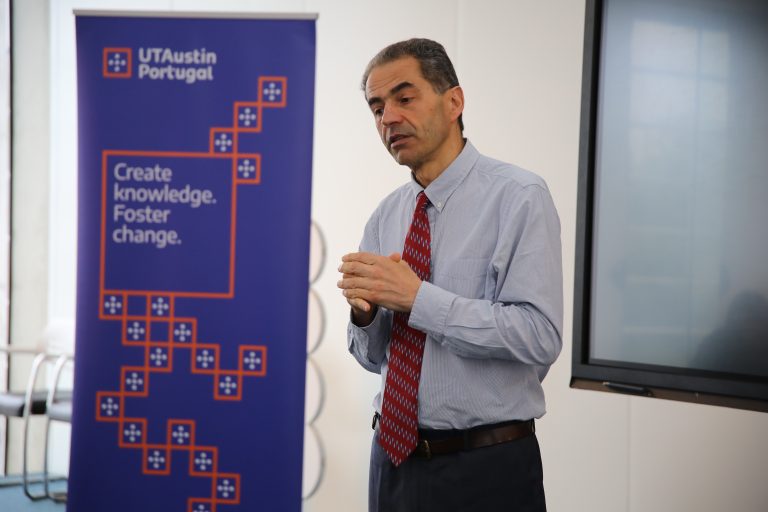
On this last day of the event, the Enablers answered questions posed by the Creatives regarding the presentations they had heard on the first day. Explored were issues that included (a) current conditions and anticipated developments within the business side of technological innovation, (b) investors’ specific performance standards and expectations, and (c) common mistakes made by technology start-ups and how to avoid them. After the conclusions of these wide-ranging discussions, both groups gathered separately to form and record conclusions based on what they learned within the full Hackathon process.
In the coming weeks, Fort will report the results the New Space Hackathon to the UT Austin Portugal Program. The report’s public release is expected to follow soon thereafter.

